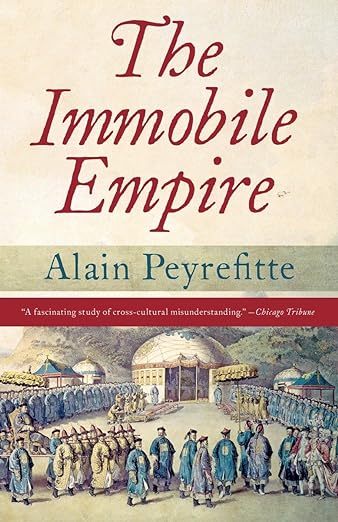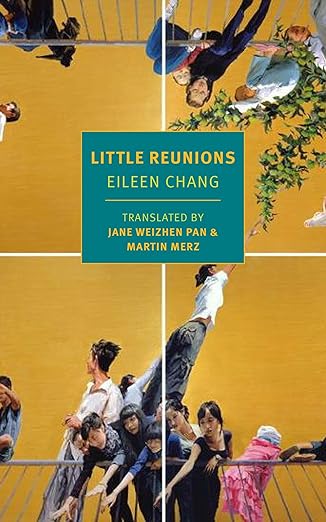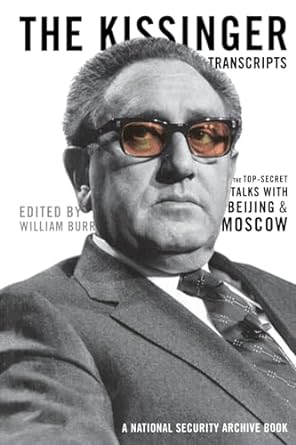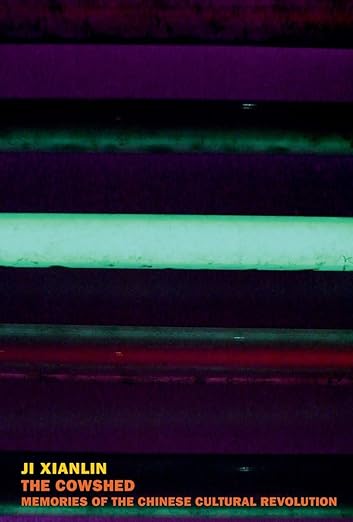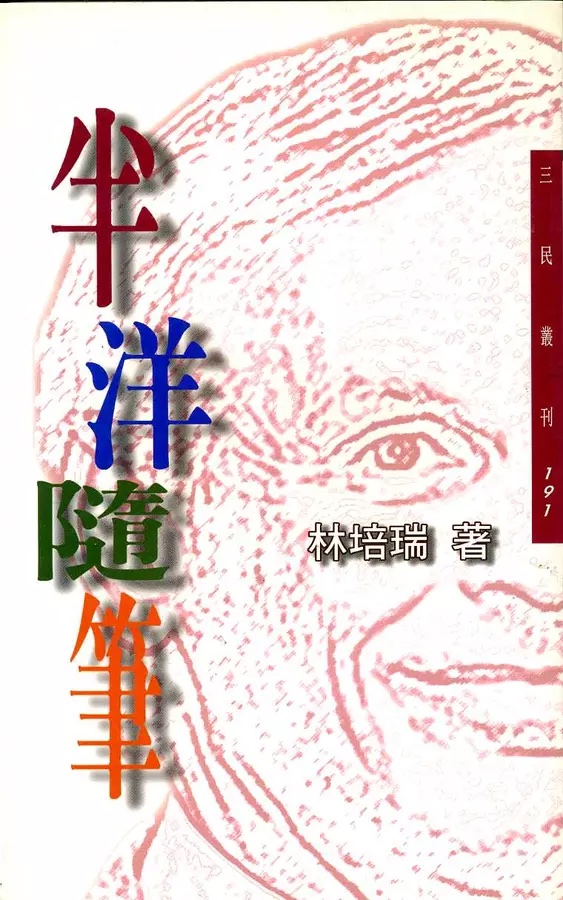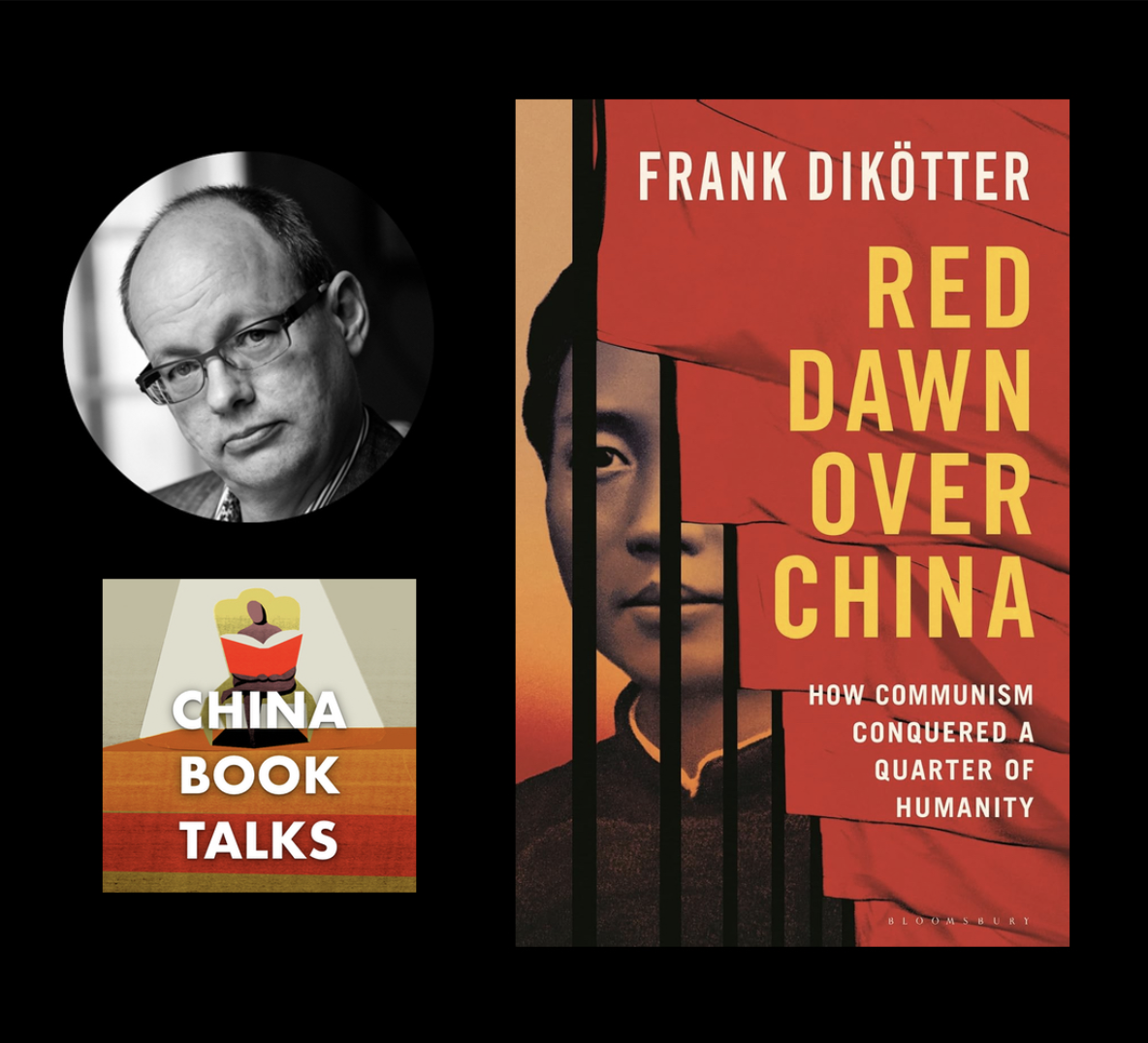Sign up for our newsletter to be notified of new posts!
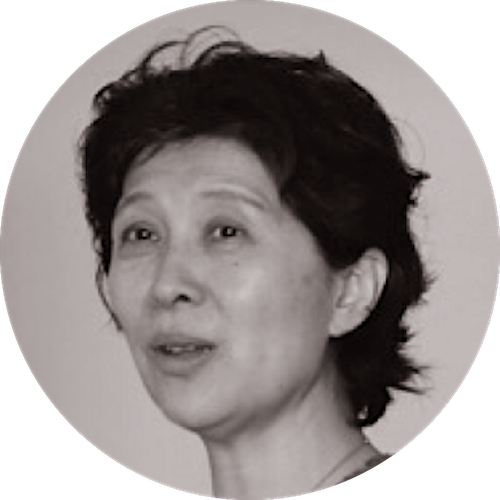
Jianying Zha (查建英) is the author of two books in English, Tide Players (2011) and China Pop (1995), and six books of non-fiction and fiction in Chinese. Her work has appeared in publications including The New Yorker and The New York Times. A recipient of a Guggenheim Fellowship, Zha has also been a regular commentator on current events on Chinese television, and worked at the India China Institute at The New School. Born and raised in Beijing, educated in China and the U.S., she lives in New York and Beijing.
We caught up with her over email to ask about her bifurcated bookshelf — and for a selection of five interesting China titles from it.
When did you start collecting books on China, and how did the shelf expand?
“Collecting books on China” sounds funny for someone from China who has always been surrounded by Chinese books. How do you build a greenhouse in a forest? I started pulling out books from my parents’ bookshelves in Beijing when I was seven, and I soon fell under the spell of their collection of classical Chinese literature which was fortunately left largely intact after a Red Guards night raid. The guilty pleasure amounted to a private parallel education during the Cultural Revolution, and led me to choose Chinese literature as an undergraduate major at Peking University. I have accumulated all kinds of books since then, but some of the most cherished volumes on my shelf are inheritance, survivors of a book-burning era: my mother’s copy of Dream of the Red Chamber I had first read at age 10, my father’s full set of Lu Xun and pre-Qin philosophers, and so on.
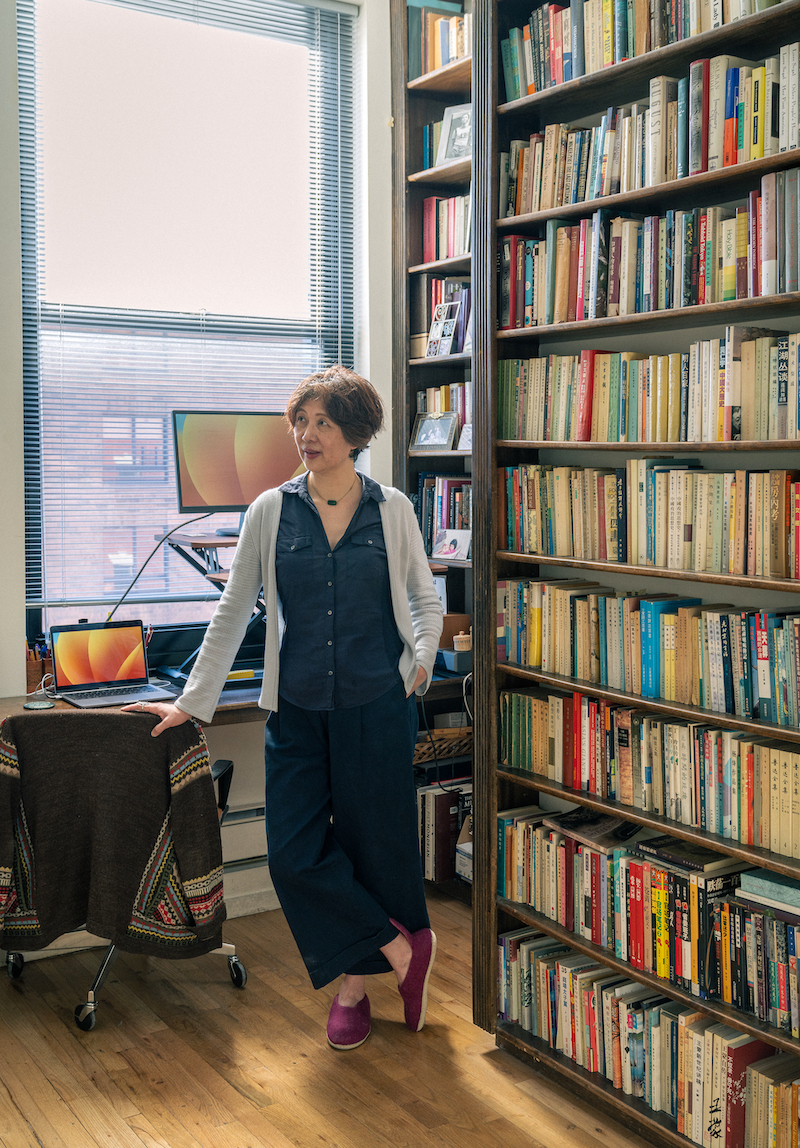
Until I came to the U.S. in the 1980s, I didn’t read or own books by sinologists, assuming them to be for a Western audience. But I have come to admire many such works; they have taught me a great deal about China, especially by putting it in a broader, critical perspective in the context of the world. This includes books on subjects familiar to me and those overlooked or shunned in China, such as The Chinese Enlightenment by Vera Schwarcz, In the Red by Geremie Barmé, Minjian by Sebastian Veg, and Sexual Life in Ancient China by R.H. Van Gulik, to name just a few. And it was thanks to the seminal writings of C.T. Hsia, my graduate advisor at Columbia University, that I first came to appreciate the brilliant, cosmopolitan fiction of Eileen Chang and Qian Zhongshu.
Where is the collection now, and how do you organize it?
It’s stored in Beijing and New York because I’ve been dividing my residence between these two cities. In my New York study, I have floor-to-ceiling shelves built to make full use of an old loft. All novels in English, parked on the upper shelves, reachable by a ladder, are alphabetized by authors, a feat which amazes me still. The rest is a jungle. But I don’t really have trouble finding my books, because in a jungle of your own making you have a sixth sense about what lives where.
What else lives on your bookshelf?
Family photos; a small music system; trinkets from field trips to India, from my years of working for the India China Institute. One side shelf is like a small shrine devoted to old edition classics a relative bequeathed to me. The complete set of dusty spined Twenty Four Histories (二十四史) is an impressive sight, but I’m keeping it at arm’s length thus far, heeding Lu Xun’s advice: Do not bury your head in a pile of old papers!
I don’t really have trouble finding my books, because in a jungle of your own making you have a sixth sense about what lives where.
Jianying Zha’s bookshelf picks:
The Immobile Empire
Alain Peyrefitte
May 21, 2013
Vintage
A riveting read about the ill-fated British mission led by Lord Macartney to open trade with Emperor Qianlong’s China, in 1792-3. Alain Peyrefitte — a French scholar, writer and diplomat — uses extraordinary source materials, including from the cellar of the Imperial Archives of the Forbidden City. He puts together a fascinating account of a complicated, significant historical encounter with the acuity of a seasoned politician and the flair of a novelist. The book brims with vivid characters, scenes, details and keen observations. I reviewed it in a Hong Kong magazine when the English translation came out in 1992, exactly two centuries after the watershed event but before the heyday of postcolonial studies. It’s a good idea to consult later, revisionist works, but this rich portrait of clashing imperial arrogance is a classic.
Little Reunions
Eileen Chang (tr. Martin Merz, Jane Weizhen Pan)
January 16, 2018
NYRB Classics
Eileen Chang’s oeuvre of scintillating fiction and essays embodies, quite simply, the heights of modern urban Chinese writing. Published posthumously, Little Reunions is her last novel and an underappreciated gem. Opening on the eve of Japanese invasion to China, the story centers around the protagonist Julie’s dark romance with a magnetic traitor-collaborator, her tortured relationship with an unconventional mother and a motley of eccentric characters. The novel is a sophisticated blend of brutal psychological realism and stream of consciousness narration. In spare, delicately intense prose (“slim gold form” in calligraphy comes to mind), Chang traces her characters’ emotions with pinpoint precision, and under every stroke of her pen the page pulses with joy, pain or irony. “A vase of flowers on one’s windowsill,” she writes, “is larger than the mass scene outside the window.”
The Kissinger Transcripts
The Top-Secret Talks with Beijing and Moscow
Eds. William Burr, Henry Kissinger
February 1, 2000
The New Press
Compiled from formerly classified transcripts of Henry Kissinger’s secret talks in Beijing and Moscow, this is a unique Cold War document. When its (and my) publisher, André Schiffrin, gave me a copy hot off the press, I was intrigued but hadn’t anticipated how some of its revelatory contents would hit me. In this unvarnished recording, the reader is a fly-on-the-wall inside a Zhongnanhai room, where a group of utterly unsentimental male leaders talked. The appalling jokes about Chinese women Mao traded with Kissinger don’t even begin to explain my disillusionment. Like millions of Chinese, my life has greatly benefited from America’s engagement with China, to which we remain indebted. It all began with Nixon’s groundbreaking visit in 1972. Yet the ruthlessly bare-knuckled pragmatism in the great power games, and a cynical view of human nature and human rights so evident in these transcripts, is an integral part of that complex legacy.
The Cowshed
Memories of the Chinese Cultural Revolution
Ji Xianlin (tr. Chenxin Jiang)
January 26, 2016
New York Review Books
This harrowing Cultural Revolution memoir, by the renowned Chinese Indologist Ji Xianlin, was a bestseller in China during a politically relaxed moment in the 1990s, but since then authorities have quietly suppressed the book and broader discussion of its subject. The skillfully translated English edition is a welcome, valuable addition to the small body of work in this genre. Containing shockingly graphic details of Red Guard torture, the book isn’t for the fainthearted, but I strongly recommend it to anyone who wishes to gain an understanding of that hellish Mao era. I wrote the introduction for the English edition, but Vera Schwarcz’s assessment sums it up succinctly: “This book raises questions about religiosity, dictatorship, and trauma that will impact far beyond the China studies world. … Here lies the opportunity of genuine testimony.”
Notes of a Semi-Foreigner
半洋随笔
Perry Link
April 30, 1999
Sanmin
This collection of Chinese essays by Perry Link is a personal favorite, partially because the book is an oddball in my library, and the author a rarity in his field. Good speakers and writers of English from China are a dime a dozen these days, but how many China experts (not counting those born and raised in China) do you know who speak flawless putonghua and enjoy writing Chinese essays? I know three: Geremie Barmé, Katō Yoshikazu and Perry Link. The essays are free-ranged “casual jottings:” musings about performing xiangsheng, the traditional standup comedy; a dissection of the strategic practice of the official, and the everyday language in mainland China; candid reflections on the author’s own journey from a naïve leftist to a blacklisted CCP critic; and hilarious recountings on dealing with the Beijing police. Link’s deep commitment to the Chinese language, culture and people is evident. ∎


